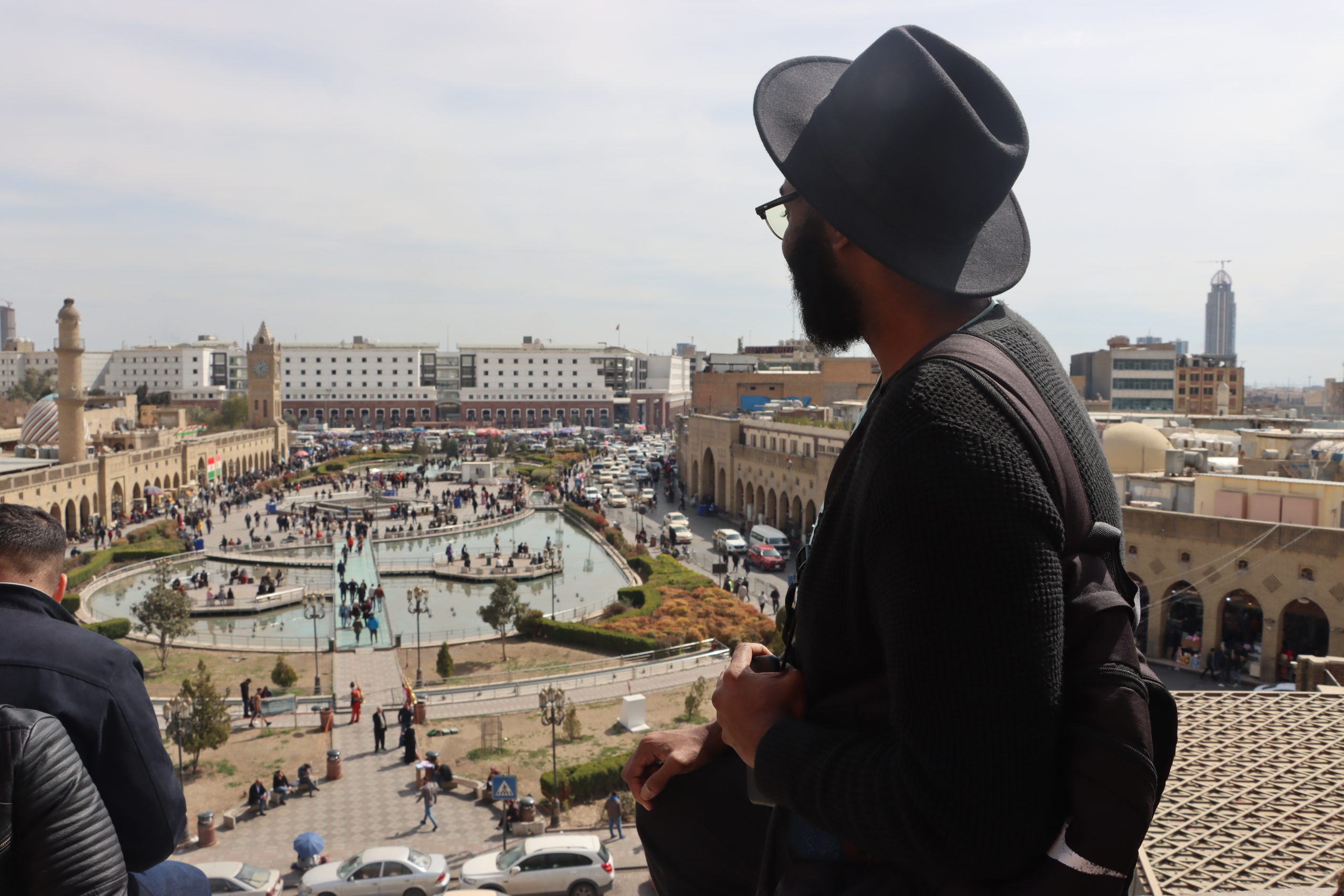
Collin Edouard has set up a project to get music books to students in Northern Iraq
I was moved when I saw a photo of students who performed on top of the remains of their school for a school theatre performance.
Collin Edouard
A Gates Cambridge Scholar has initiated a book drive to deliver music books to students at the Institute of Fine Arts in Mosul, Northern Iraq, after all their libraries and books were destroyed by ISIS.
Collin Edouard [pictured below left] set up the Music for Mosul project after being invited to Iraq by a friend, Saif Altaie, a teacher at the Institute of Fine Arts in Mosul, to work with students and help expand music and music education.
 Collin [2019], who did his master’s in Music, is interested in changing music education, making it more inclusive and ensuring that different forms of musical expression are regarded as of equal value.
Collin [2019], who did his master’s in Music, is interested in changing music education, making it more inclusive and ensuring that different forms of musical expression are regarded as of equal value.
After years of ISIS occupation, Mosul was liberated in 2017. The city, which is also known as al-Faiha (“the Paradise”), al-Khaḍrah (“the Green”) and “The Pearl of the North”, was destroyed during the political unrest. Among the many things destroyed were buildings used to create art and music making.
Collin says: “Saif recalls risking his life hiding his guitar and paintings from ISIS behind his wall because he understood the importance of keeping music alive despite the chaos. I was moved when I saw a photo of students who performed on top of the remains of their school for a school theatre performance.”
Through his time in both Mosul and Erbil, Collin learned about the challenges musicians and music educators are facing. During one discussion a music teacher in Mosul told him that there is no music library in the city or multi-purpose facility that can accommodate music events for their students.
Another teacher mentioned that music books are difficult to find for their students and that often scanned and hand-copied PDFs are used during music lessons.
 Collin says: “Despite the challenges, the music-making process prevails, and it is essential to focus on the need to make music. Even as I witnessed airstrikes when I arrived in Erbil, I heard the music from the call to worship blanket the city. Music seems to be the vessel for perseverance.
Collin says: “Despite the challenges, the music-making process prevails, and it is essential to focus on the need to make music. Even as I witnessed airstrikes when I arrived in Erbil, I heard the music from the call to worship blanket the city. Music seems to be the vessel for perseverance.
“From Mosul to Erbil, music is the foundation of daily life. You see it in the architecture of the buildings, the making of traditional clothing and the way they pour tea. Kurdish and Iraqi musicians tell me that their music is all about love. Musician Bakr Sazikurde says: ‘I feel the music in my heart, and the way we can reclaim our culture is by educating our youth in music.’”
Collin has also created a documentary of his time in Mosul. He has donated his own funds to the Music for Mosul project, but is hoping others will also be inspired to help. The music books are going to both male and female students. If you want to find out more and help, go to https://www.facebook.com/collin.edouard.
*Picture credit for the photo above right: Saif Altaie facilitating guitar instruction at the Institute of Fine Arts in Mosul












